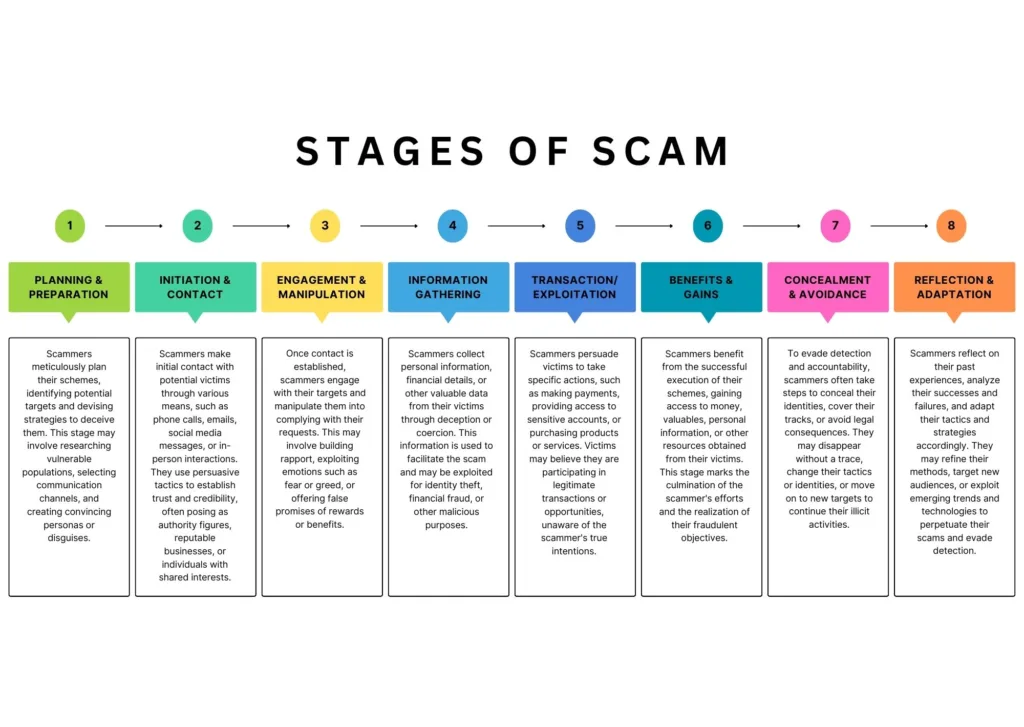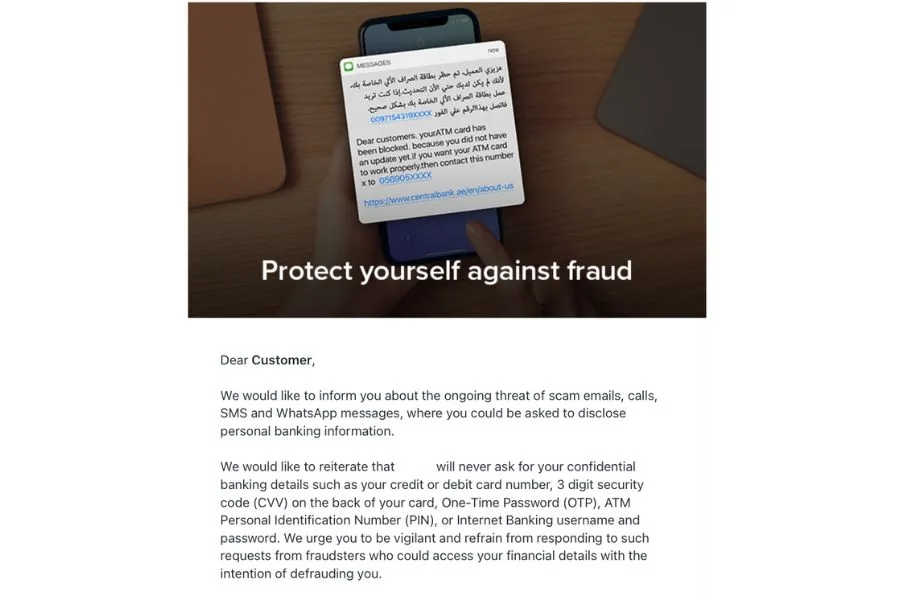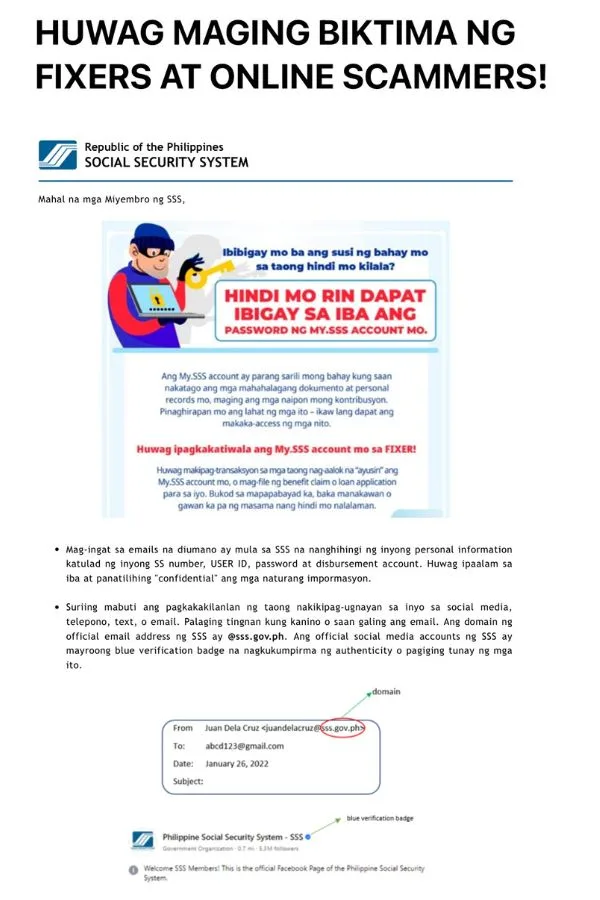This post may contain affiliate links to products or services. I may receive a commission for purchases made through these links with no cost on you. Please read my disclosure for more information.
Today, I will share some tips on how to avoid scams both online and offline, my experiences, and some common red flags to watch out for.
In today’s world and at the height of the digital age, scams are becoming increasingly sophisticated and prevalent.
Scammers are constantly devising new ways to trick unsuspecting individuals out of their hard-earned money.
Sad to say, I’ve also been a victim of both online and offline scams and learned my lessons. With the right knowledge and precautions, you and I can avoid falling victim to these schemes.
WHAT IS A SCAM?
A scam is a deceptive scheme or fraudulent activity designed to trick individuals or organizations into giving away money, valuable information, or goods under pretenses.
Scams often involve dishonest tactics such as misrepresentation, manipulation, or coercion to exploit victims for financial gain or other malicious purposes.
Scams can take various forms, including phishing emails, phone calls, fake investment opportunities, lottery scams, romance scams, and identity theft, among others.
The goal of a scam is to deceive unsuspecting individuals or organizations into providing something of value to the scammer, typically resulting in financial loss or harm to the victim.
HOW SCAM WORKS

Throughout this cycle, scammers exploit vulnerabilities in human behavior, societal norms, and technological systems to achieve their objectives.
By understanding the stages of a scam and being aware of common tactics used by scammers, you can avoid from falling victim to scams.
TYPES OF ONLINE SCAMS
1. Phishing
Scammers send fraudulent emails, text messages, or social media messages posing as reputable organizations, such as banks, government agencies, or well-known companies.
These messages typically contain urgent requests for personal information or direct recipients to fake websites. The links were designed to steal login credentials or financial details.
Sad to say, but I was a recent victim of these by responding to messages on my Etsy shop based on emotions. I didn’t practice due diligence before answering the message as I thought it was a legitimate message from Etsy.
Being in an emotional state, I immediately provided my email address as they requested to email me the link. I clicked the link and was directed to a site. Although I was hesitant and felt that something wasn’t right, I still put on my details and followed their prompts. In the end, they were able to get money from my account.
Such an unfortunate situation that I wanted you to avoid.
2. Fake Websites
Scammers create fake websites that mimic legitimate ones, such as online shopping sites, banking portals, or government agencies.
Unsuspecting users may enter their personal or financial information on these sites, thinking they’re legitimate, only to have their data stolen and misused by the scammers.
3. Investment Scams
Scammers lure victims with promises of high returns on investment through online platforms, such as cryptocurrencies, stocks, or forex trading.
They may use fake testimonials, fabricated success stories, or misleading information to convince individuals to invest their money, only to disappear with the funds once they’ve been deposited.
4. Romance Scams
Scammers create fake profiles on dating websites or social media platforms to establish romantic relationships with unsuspecting victims.
Once they’ve gained the victim’s trust, they may ask for money under various pretexts. Examples are medical emergencies, travel expenses, or business investments, before disappearing without a trace.
5. Tech Support Scams
Scammers impersonate technical support representatives from reputable companies and contact individuals claiming their computers have been infected with malware or viruses.
They may instruct the victim to download remote access software or pay for unnecessary services to fix the non-existent issue, providing the scammers with access to sensitive information or financial accounts.
TYPES OF OFFLINE SCAMS
1. Door-to-Door Sales
Scammers go door-to-door selling fake products or services, such as home improvement services, magazine subscriptions, or counterfeit goods.
They may use high-pressure sales tactics or deceptive claims to convince homeowners to make purchases or provide payment upfront, often delivering substandard or non-existent products or services.
2. Lottery or Prize Scams
Scammers contact individuals by phone, mail, or in person, informing them that they’ve won a lottery or prize and need to pay a fee or taxes to claim their winnings.
Victims are asked to provide personal or financial information or make payments upfront. However, they never receive the promised prize, and the scammers disappear with their money.
One of the largest and most notorious lottery or prize scams in recent years is the case of the Jamaican lottery scam. Also known as the Jamaican lottery fraud or lottery scamming.
3. Charity Scams
Scammers pose as representatives of legitimate charities or organizations and solicit donations from individuals, often using emotional appeals or fake stories to elicit sympathy.
They may use aggressive tactics to pressure individuals into making donations or provide false information about how the funds will be used, pocketing the money for themselves instead of using it for charitable purposes.
One of the largest and most notorious charity scams in recent memory is the case of the National Children’s Leukemia Foundation (NCLF) in the United States.
4. Ponzi Schemes
Scammers promise investors high returns on their investments by using funds from new investors to pay returns to earlier investors.
They may present the scheme as a legitimate investment opportunity, but in reality, it’s unsustainable and collapses when there are no longer enough new investors to support the payouts, leaving most investors with significant financial losses.
One of the most infamous examples of a Ponzi scheme is the case of Bernard Madoff and his investment firm, Bernard L. Madoff Investment Securities LLC.
5. Travel and Vacation Scams
Scammers offer fake travel deals or vacation packages at discounted prices, often through unsolicited phone calls or mailings.
They may pressure individuals to make immediate bookings or payments, claiming limited availability or exclusive offers, but the promised trips never materialize, and the scammers disappear with the money.
One of the largest and most well-known travel and vacation scams in recent years is the case of Dream Trips, operated by WorldVentures Holdings LLC.
I have also been a victim of this kind of scheme. At first, they offer a raffle coupon as part of their grand opening promo without a cost. Then on that evening, they called me telling me that I had won a gold coin. To get the coin, I needed to attend their seminar at a hotel (which is a red flag already, a company needs to have an office).
I opted to go with my husband since I had a feeling that it might be a scam. But I was a bit brave because I told myself not to pay anything or buy anything.
They told us how their products could benefit us and our family. They manipulated us into buying their products and services using emotional blackmail. And also never let us go or give their gold coin unless we purchased.
TIPS ON HOW TO AVOID SCAMS
Avoiding scams online and offline requires a combination of awareness, caution, and proactive measures to protect yourself from various tactics employed by scammers.
Here are detailed steps on how to avoid scams, along with examples of common tactics used:
1. Be Skeptical of Unsolicited Emails, Messages, Calls or Offers
One of the most common tactics used by scammers is to reach out to individuals unsolicited, whether it’s through emails, phone messages, social media messages, or offers.
What to watch Online:
- Scammers often use phishing emails or messages to trick individuals into providing personal information or clicking on malicious links.
- These messages often contain urgent requests for personal information or financial transactions.
- The messages may appear to come from trusted sources, such as banks, government agencies, or reputable companies.

What to watch Offline:
- Unsolicited offers can come in various forms, such as a stranger approaching you on the street with a business or investment opportunity or receiving a phone call or text message from someone claiming you’ve won a prize.
- Sometimes, scammers would offer a free product in exchange for “20 minutes” of your time to introduce their products or services. However, in the end, you will spend more than an hour of your time until you give in to their “investment opportunity”.
- It’s essential to approach such offers with skepticism because legitimate opportunities typically don’t come out of nowhere.
- If they ask for money upfront, it is already a red flag. Learn to say a firm “NO”.
Remember, legitimate companies never ask for personal or financial information such as passwords, credit card details, account or bank information, etc. Also, they would never ask for any money to fix or update your information or buy their products and services.
2. Verify Website Authenticity, Identities and Credentials
Before entering personal or financial information on a website, ensure that it is legitimate and secure to avoid scams.
What to watch Online:
- Look for HTTPS in the URL and a padlock icon in the browser address bar, indicating a secure connection.
- Avoid websites with misspelled URLs or unfamiliar domains or odd grammar (e.g., “amazoon.com” instead of “amazon.com”).

What to watch Offline:
- Before engaging with individuals or organizations offering services or products, take the time to verify their identities and credentials.
- Ask for official identification or licenses, and independently research the legitimacy of the company or individual. Scammers often pose as legitimate businesses or authorities to gain your trust.
3. Exercise Caution with Online Purchases and Payment Requests
When shopping online or making payments, only use secure and reputable websites or payment methods.
- Avoid making purchases from unfamiliar or unverified sellers, especially if they ask for payment via wire transfer, gift cards, or cryptocurrency, as these methods are favored by scammers.
- Be cautious of unusual time-limited offers, flash sales, or overly discounted pricing.
- When you receive a One-Time Password (OTP) message from your bank, read it carefully and completely. Ensure the transaction details such as the amount and merchant name match your intended transaction.
- Never share your OTP with anyone. Any unknown caller asking you to disclose your OTP is certainly an attempt to defraud you.
4. Avoid Scams by Protecting Your Personal Information and Passwords
Safeguard your personal information and passwords to prevent identity theft and unauthorized access to your accounts.
What to watch Online:
- Never share sensitive information such as your credit card details, bank account details, or passwords with anyone you don’t trust.
- Use strong, unique passwords for each of your online accounts and enable two-factor authentication whenever possible.
- Be cautious when sharing personal information on social media platforms, as scammers may use this information to target you more effectively.
What to watch Offline:
- Be cautious about sharing sensitive details with individuals or organizations you don’t know or trust. For example: A stranger approaches you at a coffee shop and strikes up a conversation, asking personal questions such as your date of birth, your mother’s maiden name, and the name of your first pet. These seemingly innocent questions could be attempts to gather information for identity theft, so it’s essential to be cautious about sharing such details.
5. Update Software and Use Security Tools
Keep your devices and software up to date with the latest security patches and updates.
- Use reputable antivirus software, firewalls, and other security tools to protect against malware, viruses, and other online threats.
- If your computer’s antivirus software detects a suspicious file attached to an email you received. Instead of opening the attachment, follow the software’s prompts to quarantine and delete the file to prevent a potential malware infection.
6. Be Wary of High-Pressure Sales Tactics to Avoid Scams
Scammers often employ high-pressure sales tactics to rush you into making decisions without proper consideration.
If someone is pressuring you to act quickly or make a purchase on the spot, take a step back and evaluate the situation carefully. Legitimate businesses will typically give you time to consider your options.
For example: A door-to-door salesperson insists that you must sign up for their home security system immediately, claiming that there’s a limited-time offer and only a few spots left in your neighborhood. They refuse to leave until you agree to purchase the system, despite your hesitation and requests for more time to think it over.
7. Beware of Investment and Get-Rich-Quick Schemes
Scammers often lure individuals with promises of high returns on investment or get-rich-quick schemes both online (e.g. cryptocurrency investments) and offline (face-to-face encounters).
- Be skeptical of investments that promise guaranteed returns or excessively high profits with little risk. These kinds of offers sound too good to be true. No investment opportunity can give you massive returns in a short period. It takes time to yield returns in a legitimate investment.
- Avoid investing based on your emotions (e.g. greed, pleasure, instant gratification, etc.)
- Research the company or individual offering the investment opportunity. Look for reviews, news articles, and any complaints filed with regulatory agencies.
- Avoid investments that you don’t fully understand or that are overly complex.
- Seek advice from a trusted financial advisor before making any investment decisions.
8. Stay Informed and Trust Your Instincts
Staying informed about the latest scams and trusting your instincts can go a long way to protecting yourself from falling victim to fraud.
- Knowledge is your best defense against falling victim to fraud. Familiarize yourself with common red flags and warning signs of scams to recognize and avoid them effectively.
- Banks, government agencies, popular brands, and legitimate establishments usually send out information to be aware of online scams. Instead of ignoring these messages, read them carefully, it might save you from being a victim of scams.
- Keep up-to-date with news reports and warnings from reputable sources, and if something feels off or too good to be true, it probably is. Don’t ignore your intuition, even if the offer seems tempting.
9. Report Suspicious Activity
If you encounter suspicious or fraudulent activity, report it to the appropriate authorities, such as local law enforcement or consumer protection agencies.
By reporting scams, you can help others avoid scams and hold scammers accountable for their actions.
CONCLUSION
In conclusion, avoiding scams online and offline necessitates vigilance and skepticism toward unsolicited offers or requests.
By verifying the authenticity of websites, exercising caution with payments, and protecting personal information, individuals can mitigate the risk of falling victim to scams.
Staying informed, trusting instincts, and reporting suspicious activity are crucial steps in safeguarding against fraudulent schemes and protecting oneself and others from financial harm.
Having these on mind, you can avoid being a victim of scams.
Remember, if something seems too good to be true, it probably is.
Stay safe and protect your hard-earned money!
ACTION PLAN
Have you been scammed before? Please share your experiences so other people will benefit and avoid these kinds of scams.





